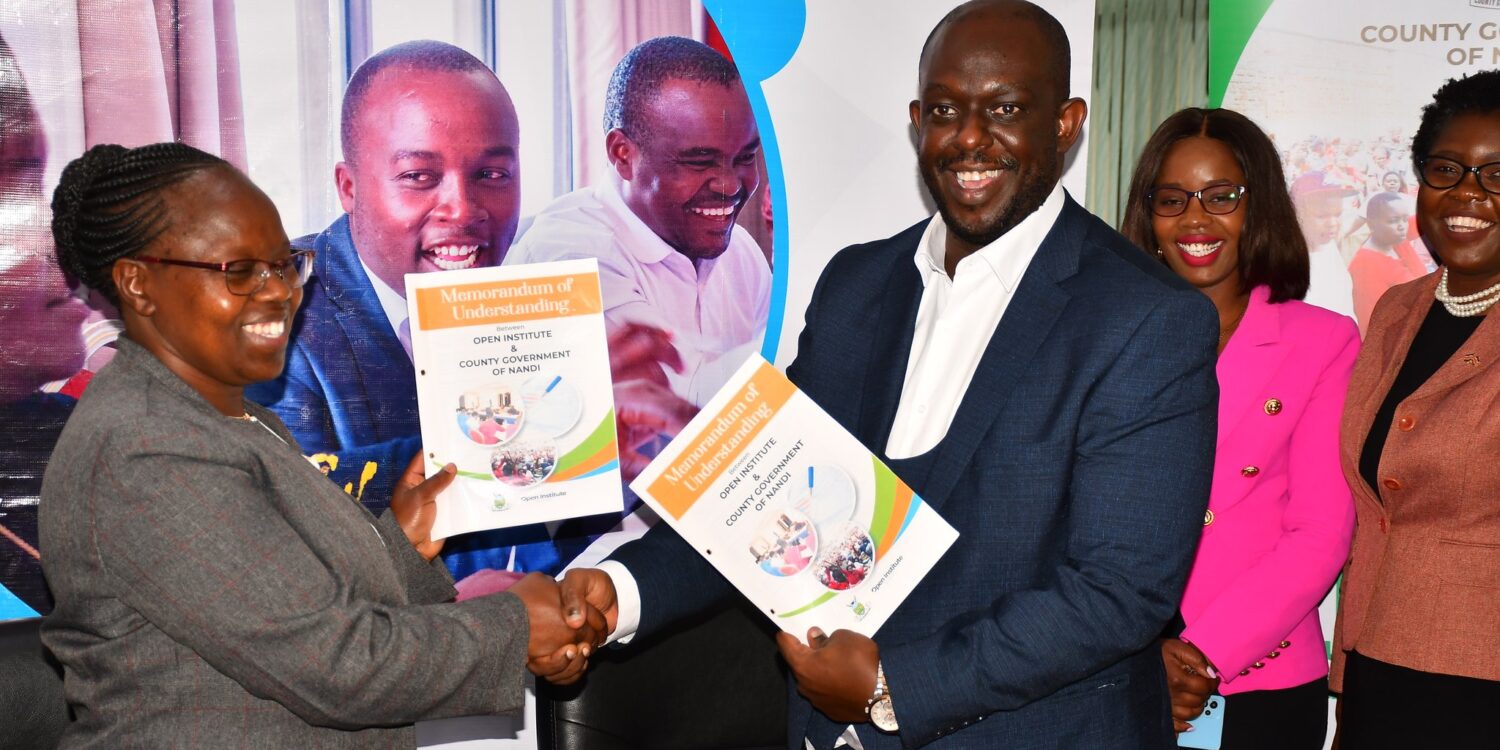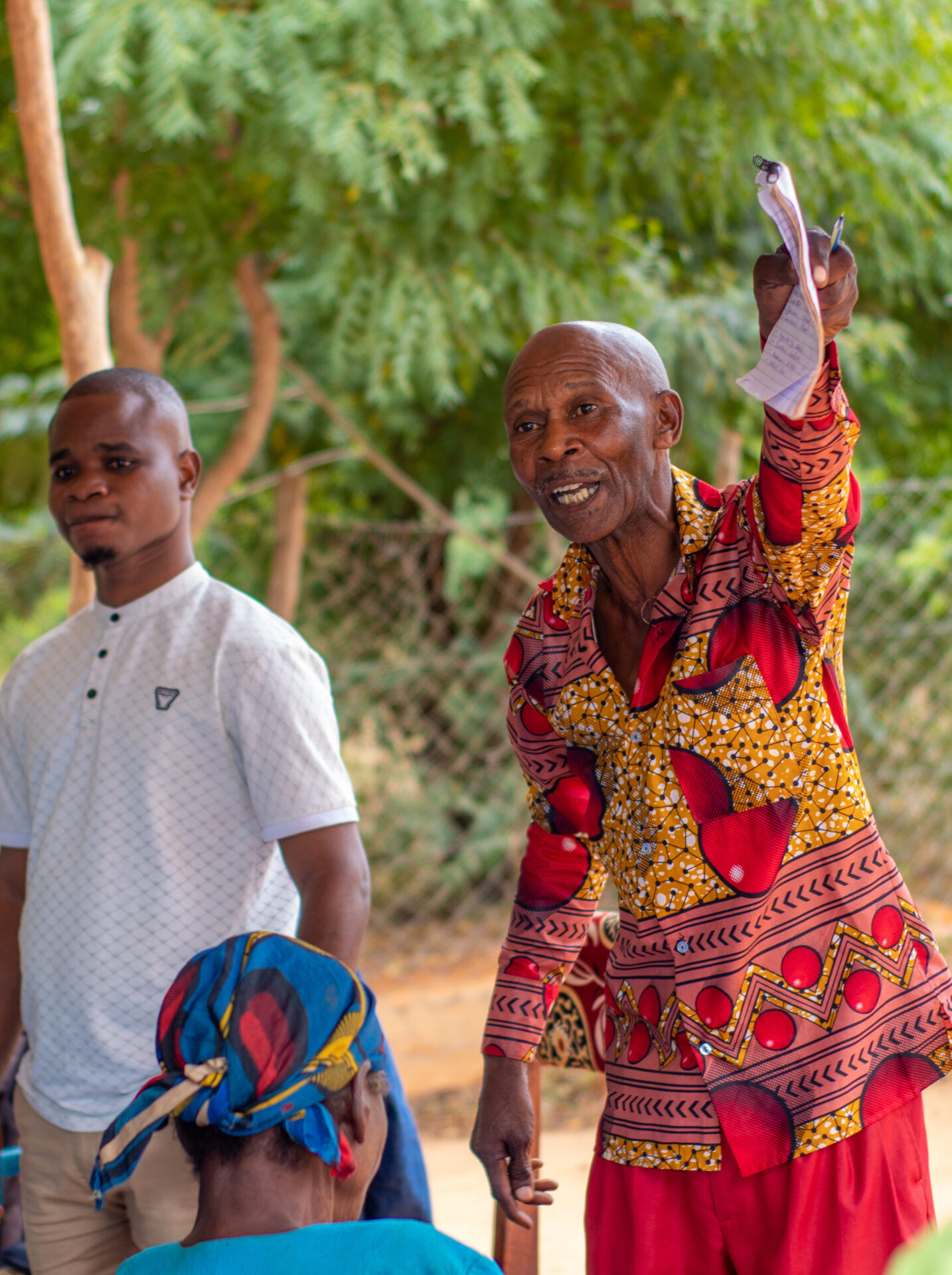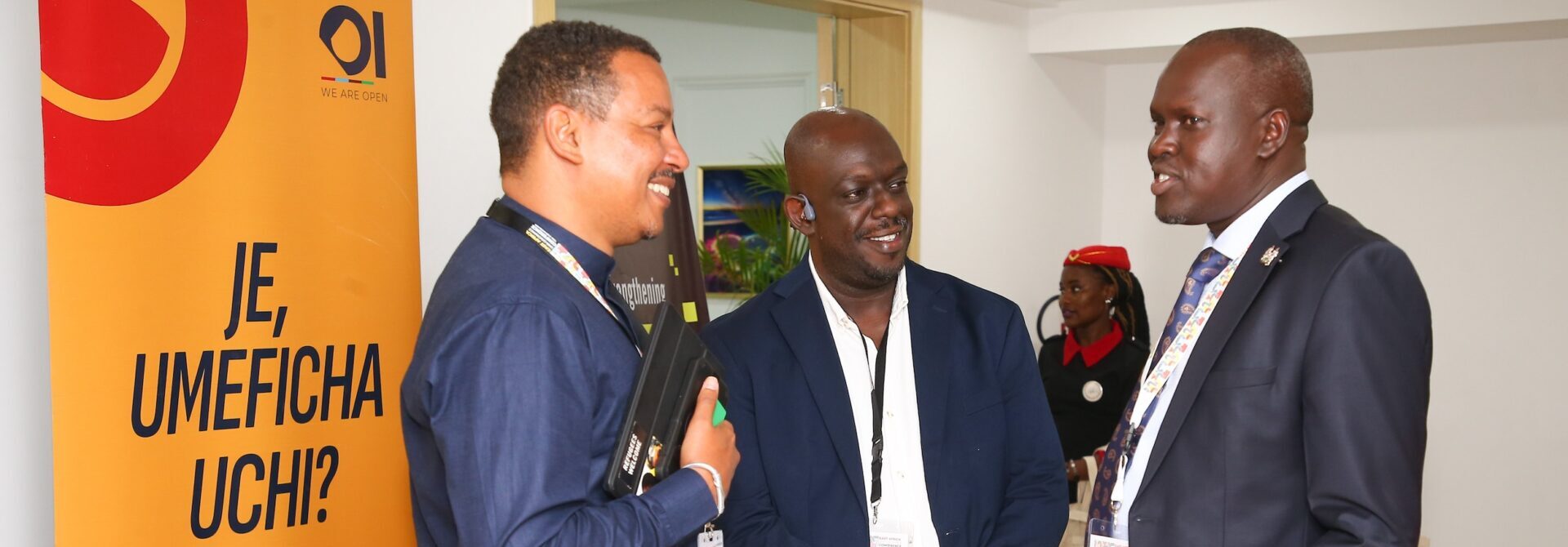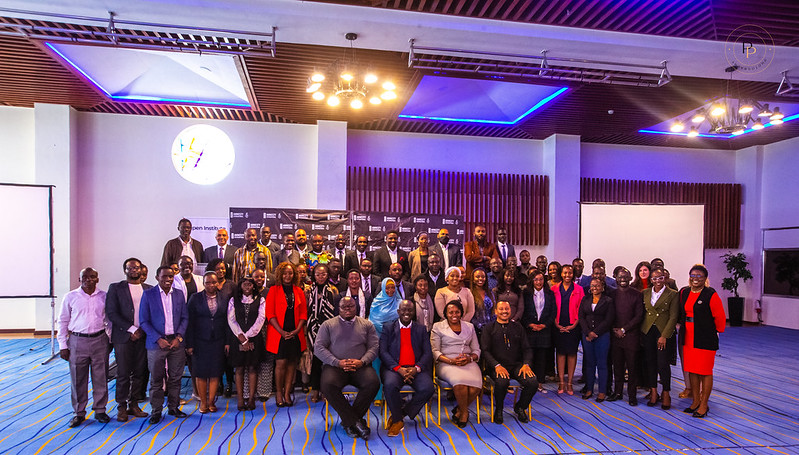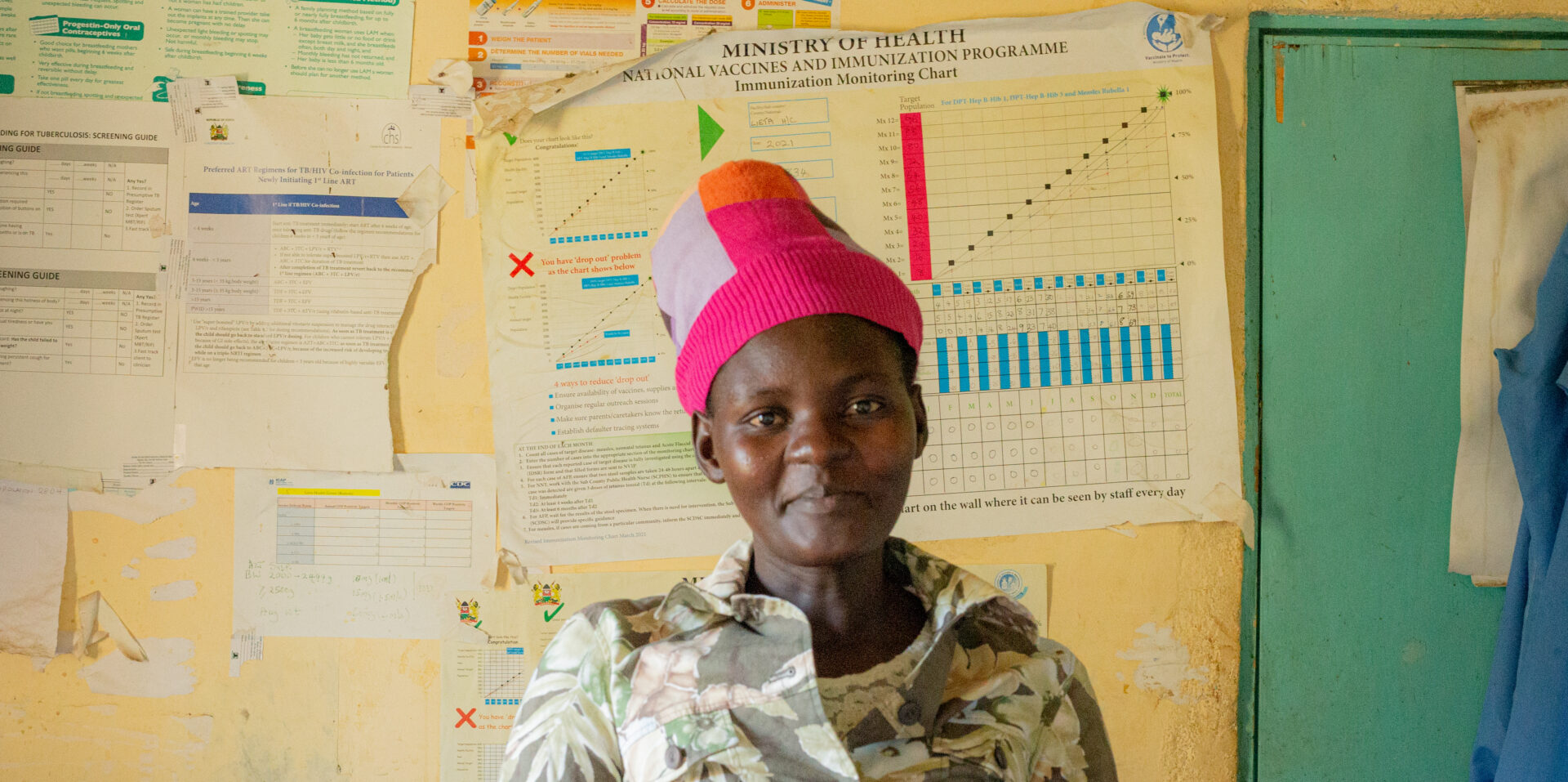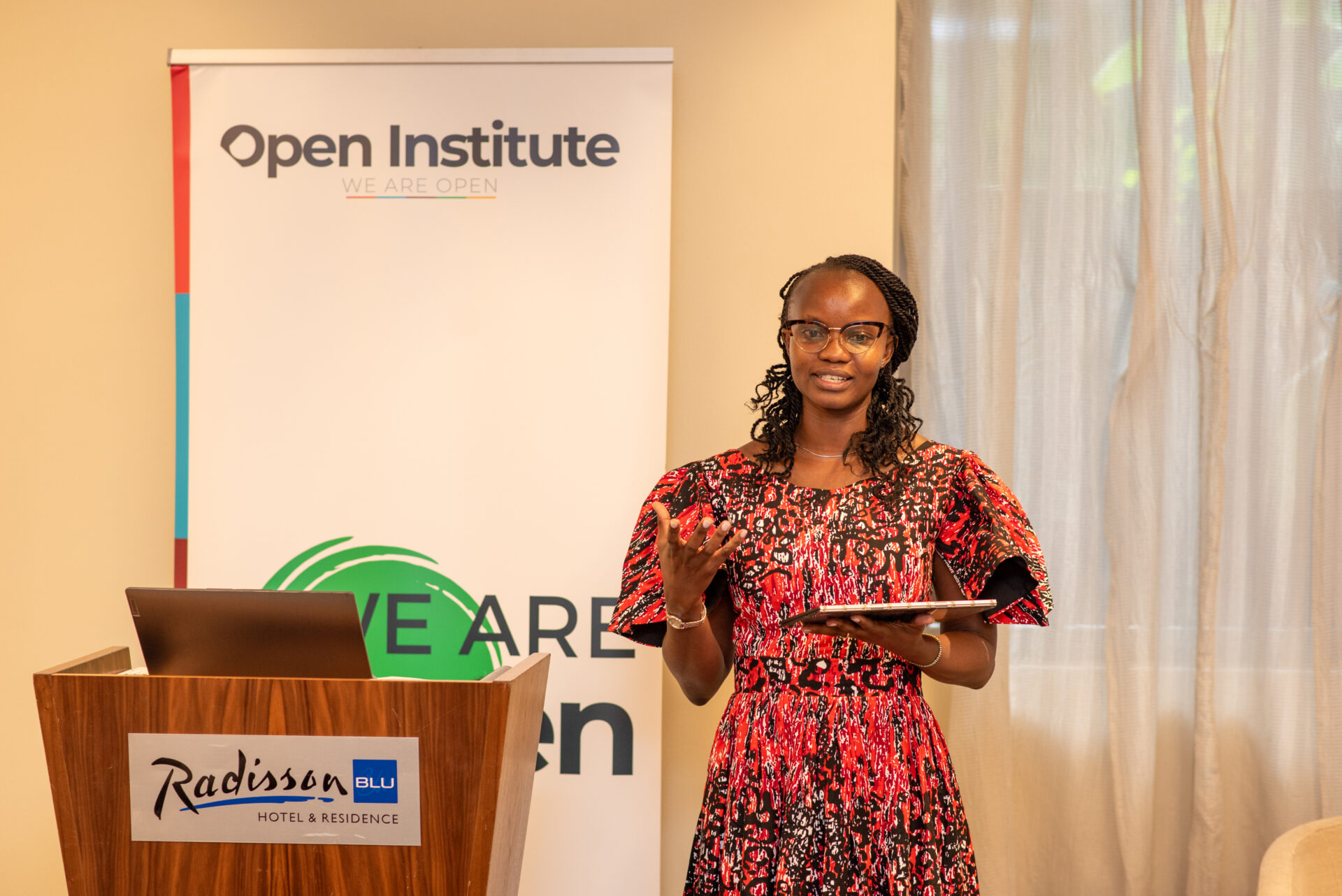Yesterday marked a great milestone in our Open County programme as we signed an MOU with Nandi County, committing ourselves to establishing a Data Desk in the county. This would make Nandi County the second county to formally establish the facility that has a dedicated team from every department that collects, curates, analyzes and publishes data that is relevant to the county. The first was Elgeyo Marakwet county, which launched its data desk in 2019. Coincidentally, Nandi County is one of four counties that have committed to the Open Government Partnership alongside Elgeyo Marakwet and Makueni counties.
“This engagement and collaboration with Open Institute comes at an opportune time when the county is about to embark on the development of the 3rd generation CIDP where data forms a very important part of the exercise. The County Government thanks Open Institute for its commitment to strengthen County Statistics Unit and assist in the development of the data desk where users can obtain relevant data about the county at a click of a button. Successful governments have anchored their operations in quality and reliable data. The increasing demand for better statistics has brought to the front the position the importance of statistics as a strategic resource for development. As a County, we recognise statistics as a part of the enabling environment for development and affirm our commitment to honouring the contents of this MOU.”
Dr. Yulita Mitei, Deputy Governor, Nandi County
The process that we are undertaking to establish the Nandi County data desk can be described in four stages – Buy in, Data Curation, Visualisation and finally Launch & Dissemination.
Buy in
First, the county put together a team led by their planning department under the leadership of the CEC, Finance and Economic Planning, Mr. Alfred Langat and stewarded by the Chief Officers in Charge of Planning and ICT respectively, Mr Felix Sambu and Mr. Jonathan Misoi. The team includes an officer nominated from each of the counties departments to ensure that data is collected and analysed from every facet of the county government.
Working with this group, we held meetings with a cross section of leaders including Members of the County Assembly (MCA) to develop buy-in and ensure a common understanding of the value of the Data Desk to improved decision making. Committing the Assembly’s support, the Deputy Speaker of the County Assembly, Hon. Wilson Sang noted that there is a lot of value in the data desk in improving their relationship with Nandi Citizens. “When we go for public participation, it can get very adversarial as citizens do not have the information that could help them make informed input into our plans. Publishing data will help a lot in improving our relationship with our voters.”
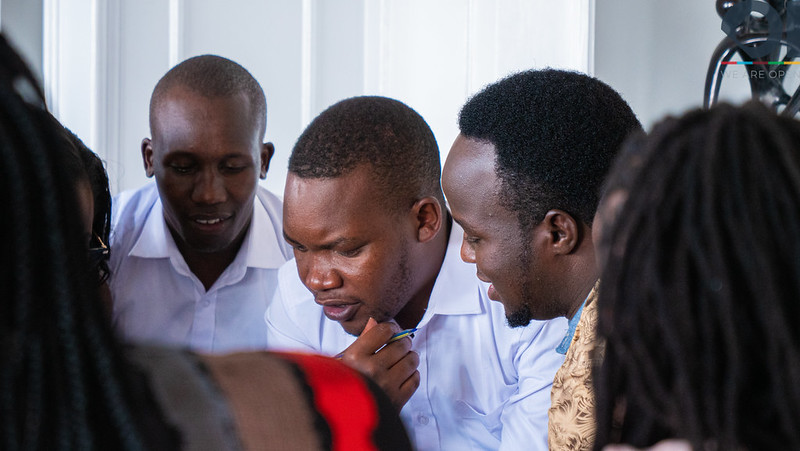
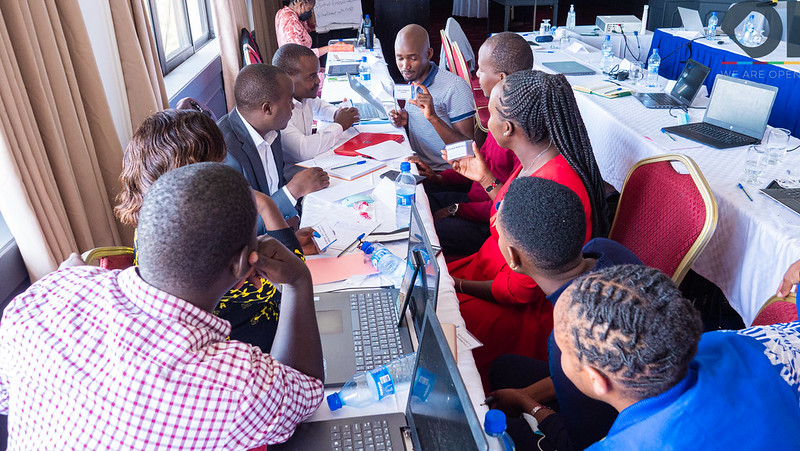
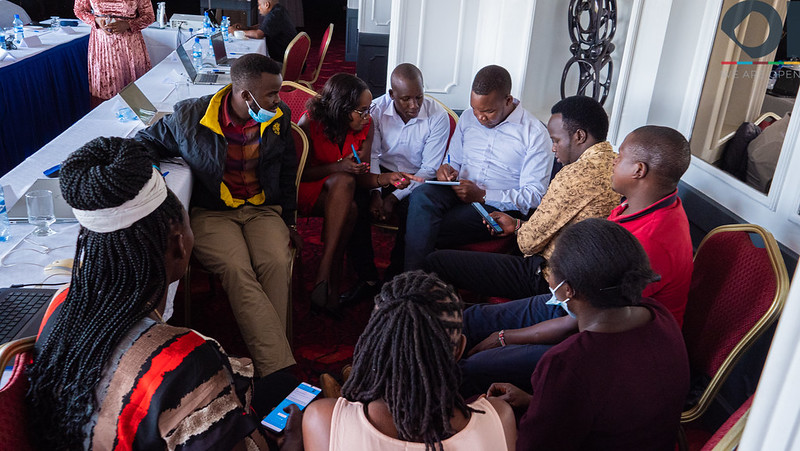
Once buy-in was achieved, we moved into the data curation stage. In this stage, we met with the Data Desk team – the planning officers as well as the designated focal leads from each department. The curation process essentially involves identifying all of the available data from each department – from revenues and expenditure to agriculture, health and education data. They also identified the data gaps and the process challenges that need to be addressed to ensure easy collection, analysis and better decision making.
That data is now being harnessed and curated to go into an online platform that will make much of the data openly available to the public. Some of it will be closed to the public and only used by the officials for purposes of making decisions based on incisive visualised data that is made even more readily available to them via the web.
We are looking forward to the launch of the Data Desk that will include unveiling a lot of the county data to the public in the next few weeks. In Nandi County, we have met a team of highly motivated government officials who are driven by the principles of true openness.
Al Kags, Executive Director, Open Institute
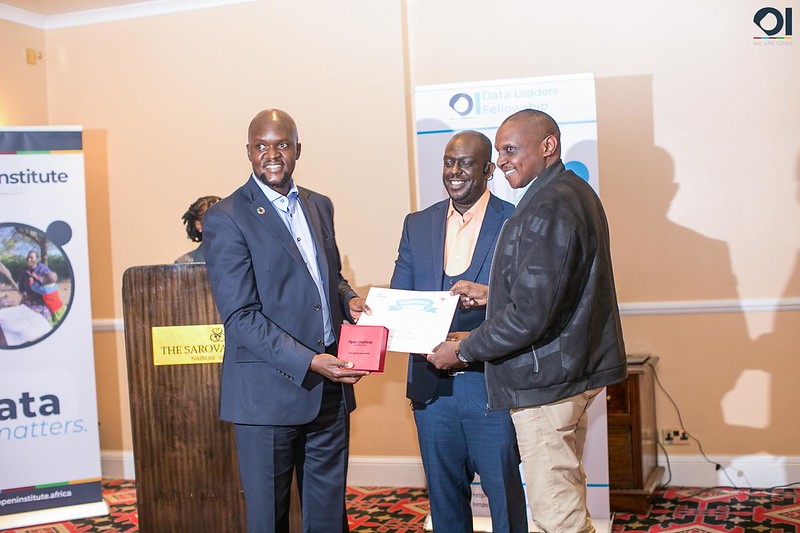
The data desk process was driven in part by Felix Sambu, Nandi’s Chief Officer in charge of Planning, who was one of the Fellows in the just concluded Data Leaders Fellowship Programme for Chief Officers.
Sub-national governments have a much more intimate relationship with citizens given that they are close to their homes. Citizens have a lot more access and therefore make far greater demands of their local governments than national governments. To that extent, counties need to have access to more incisive and granular data at the village and even household level for them to properly plan and allocate resources.

